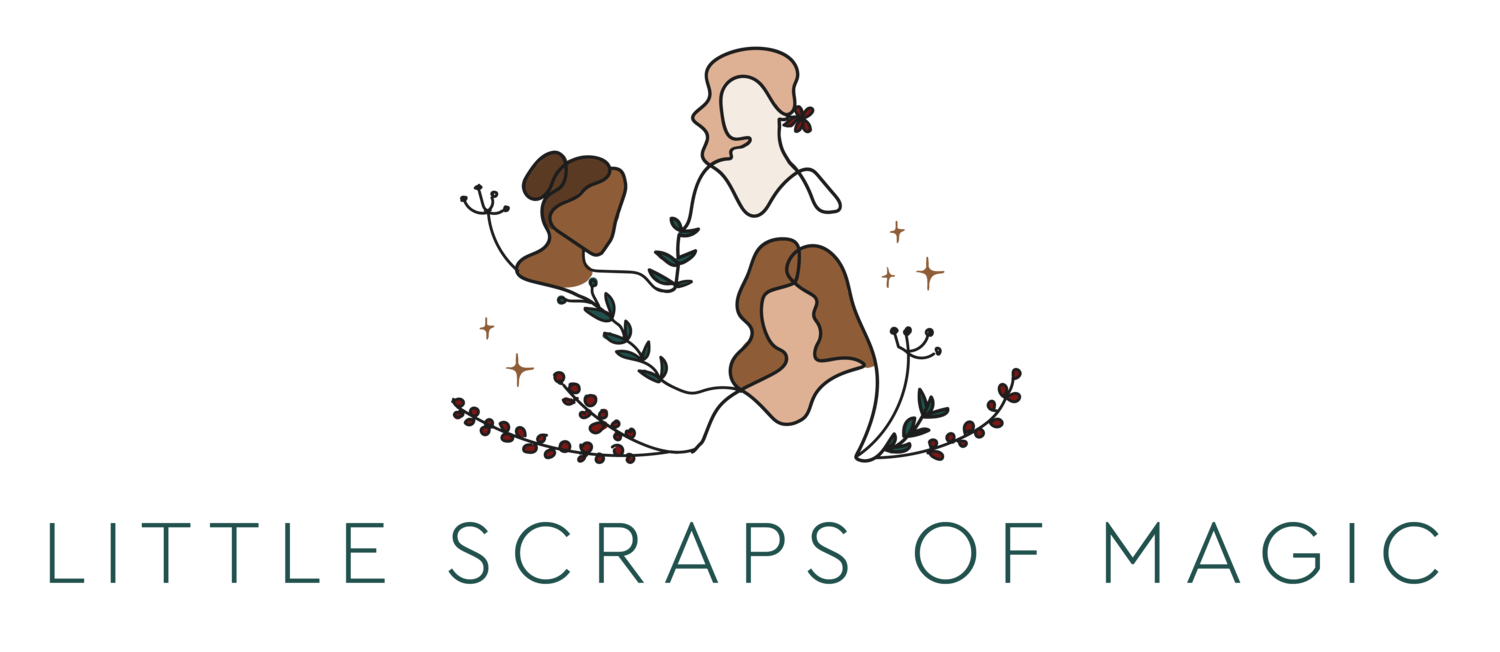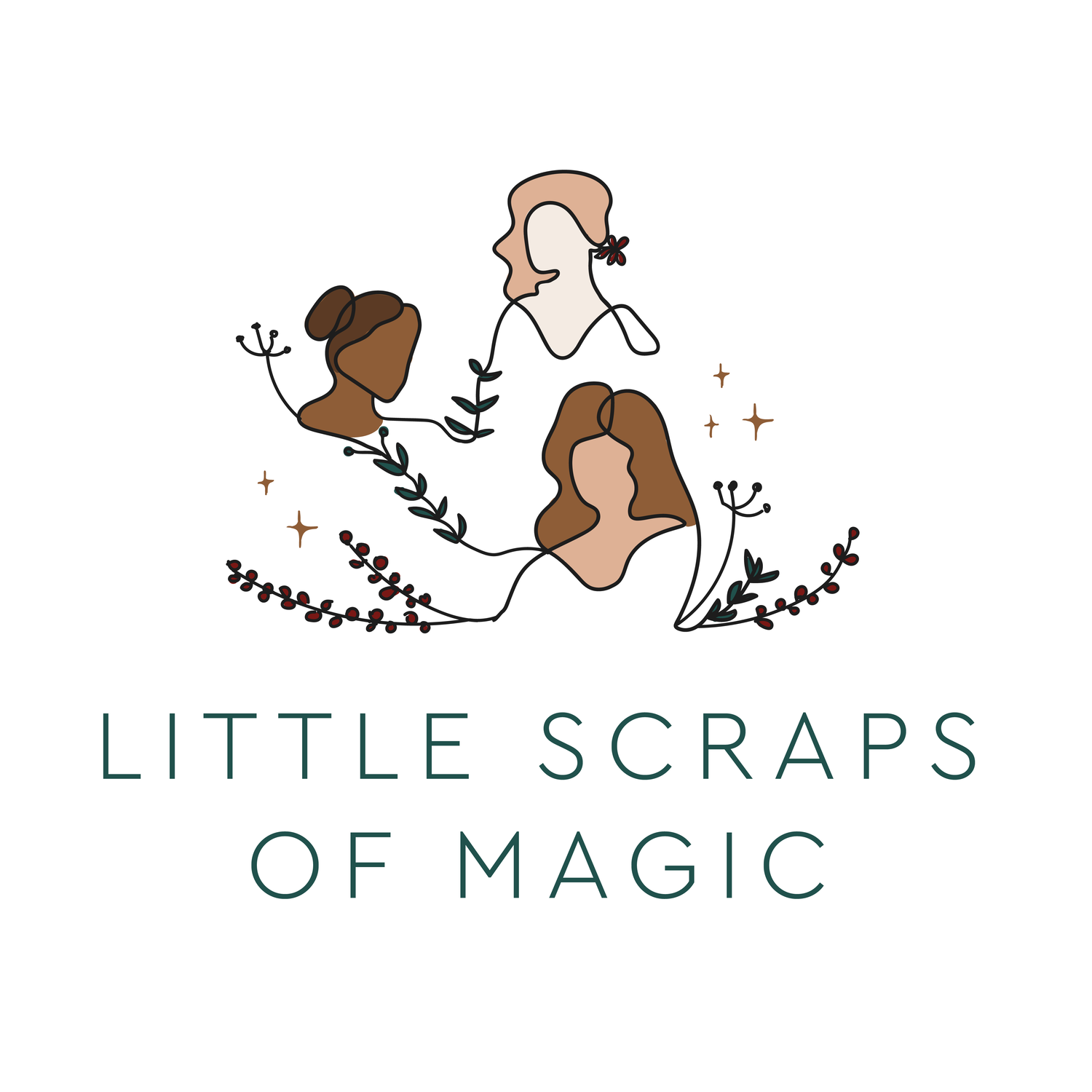Magic Spotlight: Brittyn Coleman, The Autism Dietitian
Here on the Little Scraps of Magic Blog, I like to spotlight special mamas & thought leaders who will inspire you, motivate you, & help you realize you’re not alone on this motherhood journey.
Meet Brittyn, MS, RDN/LD, CLT is a Registered Dietitian based in San Francisco, CA specializing in biomedical nutrition and functional medicine for children with ASD, ADHD, and other neurodevelopmental disorders through her private practice, Autism Dietitian. She helps parents take the guesswork out of special diets, supplement recommendations, and lifestyle changes to help their children live their best lives and be their best selves.
Brittyn, you are a Pediatric Dietitian with a passion for using nutrition to help children who have been diagnosed on the Autism spectrum. Can you explain how you fell in love with this work?
Autism is something that is very dear to me - my brother, Barrett, was diagnosed with autism when he was around 2. Growing up, I saw the role that diet played in helping him feel and be his best, and I decided to pursue it as my career! I have worked with hundreds of clients and helped educate thousands of families in their journey with autism, and definitely consider it a huge purpose in my life.
Tell us more about how diet and nutrition affect those with Autism.
Autism and nutrition are related in many ways. First, we often see that kids with autism are extremely selective eaters. This is typically caused by sensory sensitivity (texture being the main culprit) and can really restrict nutrient intake, which can cause a variety of other health issues. The research also shows us a relationship between gut health and brain health, especially in autism! Many kids with autism have microbiome imbalances which lead to gastrointestinal issues, food sensitivities, and poor digestion, among other issues. It’s important to optimize diet based on the person to promote optimal nutrition and the highest quality of life.
In addition to dietary changes, what other ways would you recommend we create healthy environments for our children?
Lifestyle modifications are a huge pillar to health. I am a big advocate for reducing toxins in day-to-day life. This involves changes like water filtration, transitioning to glass from plastic, choosing non-toxic personal care products, and addressing air quality. You don’t need to address all of these changes at once, but choose one that is the most doable for you and address that first. As soon as you feel comfortable, move on to the next! Don’t let overwhelm talk you into inaction.
What are the top vitamins and minerals you see most children missing from their diets? How can we incorporate them easily without bribing or begging?
Fiber is the nutrient that is most commonly lacking! Foods containing fiber include fruits, vegetables, beans, gains, legumes, nuts & seeds. Many kids with selective diets (and honestly most kids in the U.S.!) don’t consume an adequate amount of fiber. From a micronutrient perspective, kids with ASD are commonly lacking adequate levels of iron, folate, vitamin B12, vitamin D, and omega fatty acids.
While it may seem counterintuitive, one of the best approaches is removing pressure around eating foods.
There are many approaches to feeding that don’t involve bribing or begging! I’m a big advocate for positive reinforcement and an encouraging environment. While it may seem counterintuitive, one of the best approaches is removing pressure around eating foods. Forcing a child to eat a food can often backfire and create a negative emotion toward that food or toward mealtime. There are many other ways we can work on feeding before actually eating a food. You can touch, smell, play, and lick foods, which may eventually lead to eating. If you’re looking for more tips to help picky eaters, you can check out my blog: 3 Tips to Get Your Picky Eater to Try New Foods.
Can you speak about the gut-brain connection?
The gut-brain connection is a bi-directional connection between the gut and the brain. We see this connection play a role in autism, ADHD, anxiety, depression, Alzheimer’s, Parkinson’s, and many other neurodevelopmental and neurodegenerative diseases. The fundamentals are essentially that a healthy & balanced gut microbiome (bacteria, yeast, etc.) leads to a healthy brain and that an unbalanced and inflamed gut leads to an unhealthy brain. Or in reverse, that a large amount of stress or anxiety could cause imbalances in the gut. Our gut is called our “second brain” for a reason! If you or your loved one has autism or ADHD, it’s definitely worth looking in the gut.
What would you recommend parents look for in a multivitamin and at what age should little ones start taking them?
Multivitamin needs will vary from person to person and should take into account an individual's age, current diet, genetics, and other medical factors. Not all vitamins are created equal, and in fact, most children’s multivitamins that are purchased at a conventional store are very poor quality and are loaded with sugar, artificial dyes, and unnecessary added ingredients. I have many guidelines when choosing a multivitamin, you can see them here!
Not all vitamins are created equal, and in fact, most children’s multivitamins that are purchased at a conventional store are very poor quality and are loaded with sugar, artificial dyes, and unnecessary added ingredients.
Just for fun-- what’s your favorite movie, favorite vacation spot, and favorite book?
Oh man, I love the Harry Potter books & movies. I have to say I am more of a TV show enthusiast I love The Office, Parks & Rec, Parenthood, Grey’s Anatomy, and Criminal Minds (quite the spread, I know). I always love a good beach vacation, but also love skiing in Tahoe with my husband, Jack.






